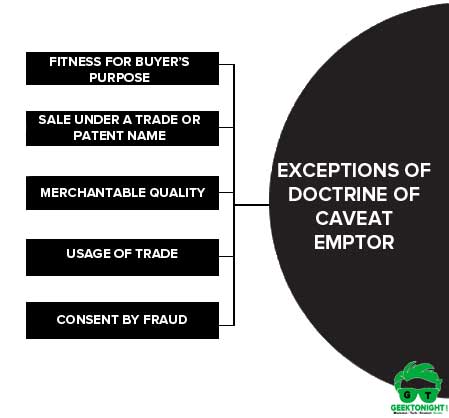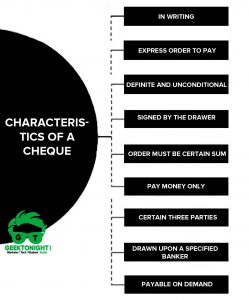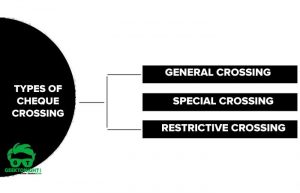Principle of Doctrine of Caveat Emptor
Subject to the provisions of this Act and of any other law for the time being in force, there is no implied warranty or condition as to the quality or fitness for any particular purpose of goods supplied under a contract of sale…
– Sec. 16, The Sale of Goods Act, 1930
Table of Content
What is Doctrine Of Caveat Emptor?
The doctrine of ‘Caveat Emptor’ means “let the buyer beware“.
In other words, the buyer must take care of his own interest while purchasing the goods. While purchasing the goods the buyer should check the goods carefully.
If a buyer purchases the goods and after it, he comes to know that these are defective. In this case, the seller will not be responsible for this defect.
The object of this principle is to make the buyer more careful in purchasing. It is his duty that he should check the quality and fitness of the commodity which he needs.
Example of Doctrine Of Caveat Emptor
Mr Anuj went to the market and purchased a Car to take a part in Car race competition. But he did not tell the seller that for which purpose he is buying. When he reached home, he came to know that this car is not suitable for car race competition. Due to the principle of Caveat Emptor, Mr Anuj can neither reject the bike nor can claim for compensation.
Exceptions of Doctrine Of Caveat Emptor
However, in the following exceptions, the Doctrine of caveat emptor is not applicable.
- Fitness for buyer’s purpose – Sec. 16(1)
- Sale under a Trade or Patent name – Sec. 16(1)
- Merchantable Quality – Sec. 16(2)
- Usage of Trade – Sec. 16(3)
- Consent by Fraud

Fitness for buyer’s purpose
When the seller is aware of the purpose for which the buyer requires the product and when the buyer relies on the judgement and skill of the seller, there is an implied condition that the product purchased serves the purpose for which it was bought. When the goods are sold under a trade name or patent mark, this condition does not apply.
Sale under a trade or patent name
When the buyer purchases products from the seller who sells goods of trade or patent mark, there is an implied condition that the product is of merchantable quality.
Merchantable Quality
There is a custom or tradition where a seller has been dealing in goods which are according to the accepted description. For instance, a bicycle would be one that is technically made for transport by peddling and that is in condition corresponding to its product description. It is a reasonably good product and the buyer may well assume it to be so.
Usage of Trade
An implied warranty or condition as to its quality and fitness for a particular purpose may be annexed by the usage of trade.
Consent by Fraud
It happens when the seller knowingly conceals the defects which could not be discovered by the buyer with the reasonable application of skill and judgement at the time of purchase. The consent is obtained by fraud and, hence, the seller cannot charge the buyer for his negligence to examine.
Business Law Notes
(Click on Topic to Read)
Business Law Book References
- Goel, P. K. (2006). “Business Law for Managers” Wiley
- Sheth, T. (2017). “Business Law” (2ed.) Pearson.
- Kuchhal. M.C. & Prakash. “Business Legislation for Management” (2ed.) Vikas Publishing.
FAQ
Business Law is also known as Commercial law or corporate law, is the body of law that applies to the rights, relations, and conduct of persons and businesses engaged in commerce, merchandising, trade, and sales.
Also Read:
1. Business Law Definition
2. Business Law Meaning
3. Business Law of India
The Indian Contract Act is divisible into two parts.
The first part (Section 1-75) deals with the general principles of the law of contract and therefore applies to all contracts irrespective of their nature.
The second part (Sections 124-238) deals with certain special kinds of contracts, namely contracts of Indemnity and Guarantee, Bailment, Pledge, and Agency.
Also Read:
1. Essential Elements of a Valid Contract
Sales of Goods Act 1930 came into force on 1st July 1930. It extends to the whole of India. It does not affect rights, interests, obligations and titles acquired before the commencement of the Act. The Act deals with the sale but not with mortgage or pledge of the goods.
Read Complete:
1. Essentials of Valid Sales
2. How the Contract of Sale Comes About
3. Difference Between Sale And Agreement To Sell
The Sale of Goods Act, identifies the terms, “Conditions and Warranties” as being of a prime significance in a contract of sale.
Read Complete:
Implied Conditions
Implied Warranties
Negotiable Instruments Act 1881
Negotiation of an instrument is the process by which the ownership of an instrument is transferred from one person to another.
Read Complete: Negotiable Instruments Act 1881
Go On, Share article with Friends
Did we miss something in Business Law Note? Come on! Tell us what you think about our article on Doctrine of Caveat Emptor Example, Exceptions| Business Law in the comments section.
Business Law Notes
(Click on Topic to Read)
- What is Business Law?
- Indian Contract Act 1872
- Essential Elements of a Valid Contract
- Types of Contract
- What is Discharge of Contract?
- Performance of Contract
- Sales of Goods Act 1930
- Goods & Price: Contract of Sale
- Conditions and Warranties
- Doctrine of Caveat Emptor
- Transfer of Property
- Rights of Unpaid Seller
- Negotiable Instruments Act 1881
- Types of Negotiable Instruments
- Types of Endorsement
- What is Promissory Note?
- What is Cheque?
- What is Crossing of Cheque?
- What is Bill of Exchange?
- What is Offer?
- Limited Liability Partnership Act 2008
- Memorandum of Association
- Articles of Association
- What is Director?
- Trade Unions Act, 1926
- Industrial Disputes Act 1947
- Employee State Insurance Act 1948
- Payment of Wages Act 1936
- Payment of Bonus Act 1965
- Labour Law in India
Business Law Notes
(Click on Topic to Read)
- What is Business Law?
- Indian Contract Act 1872
- Essential Elements of a Valid Contract
- Types of Contract
- What is Discharge of Contract?
- Performance of Contract
- Sales of Goods Act 1930
- Goods & Price: Contract of Sale
- Conditions and Warranties
- Doctrine of Caveat Emptor
- Transfer of Property
- Rights of Unpaid Seller
- Negotiable Instruments Act 1881
- Types of Negotiable Instruments
- Types of Endorsement
- What is Promissory Note?
- What is Cheque?
- What is Crossing of Cheque?
- What is Bill of Exchange?
- What is Offer?
- Limited Liability Partnership Act 2008
- Memorandum of Association
- Articles of Association
- What is Director?
- Trade Unions Act, 1926
- Industrial Disputes Act 1947
- Employee State Insurance Act 1948
- Payment of Wages Act 1936
- Payment of Bonus Act 1965
- Labour Law in India






